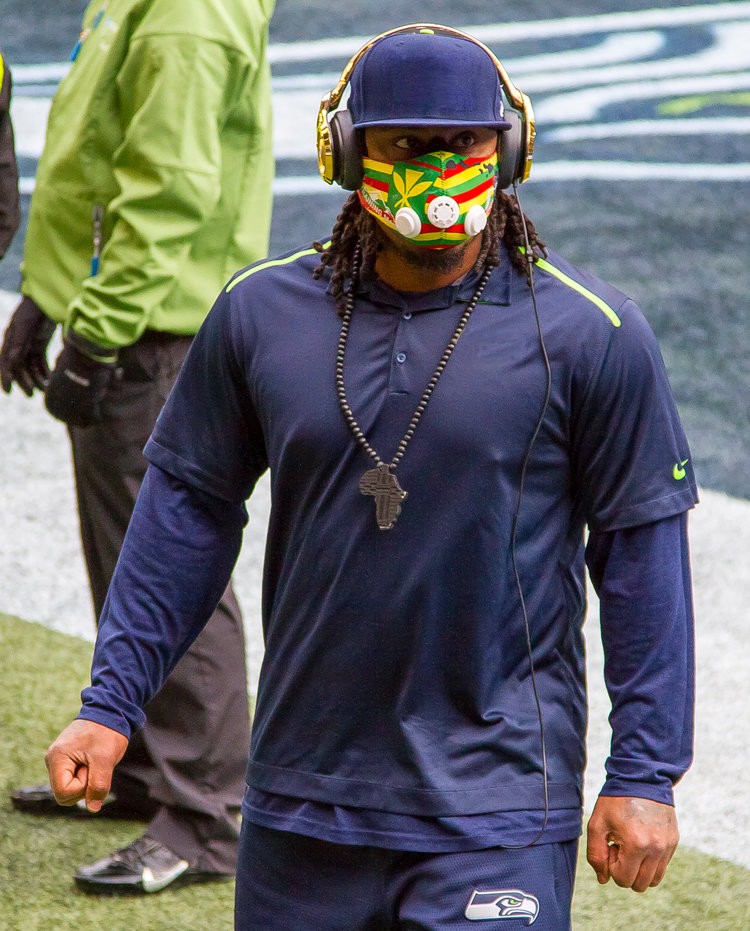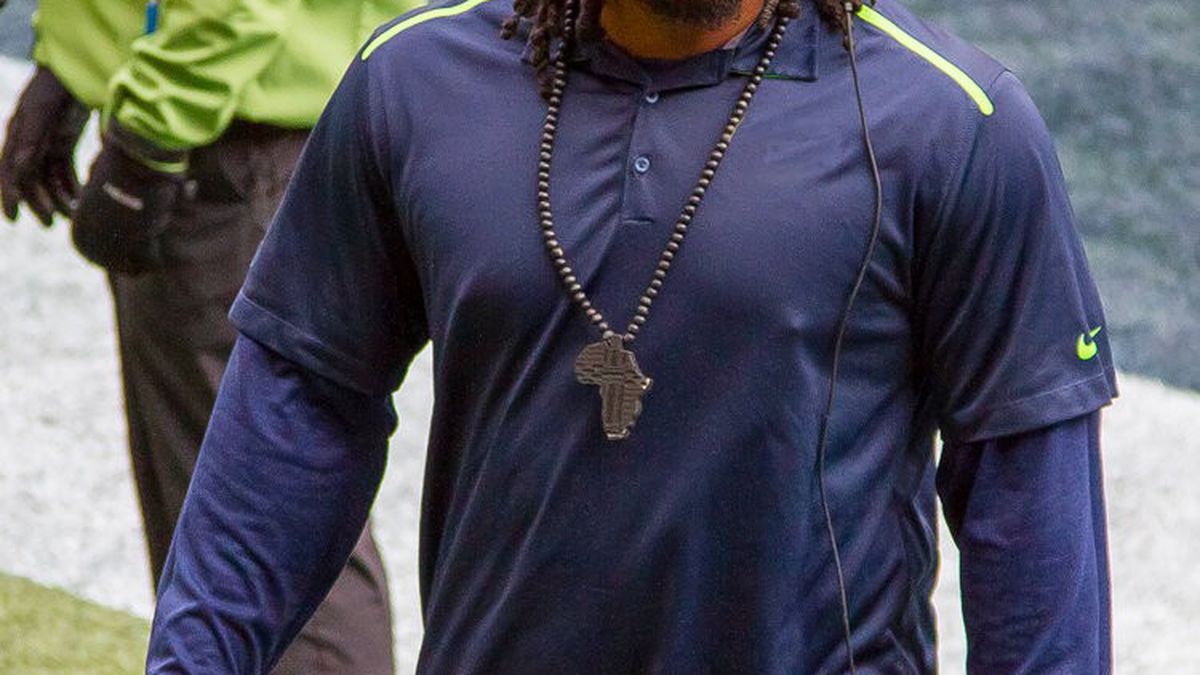
A movie and panel discussion scheduled this Wednesday, Aug. 7, is a dream lineup for any fan of both Oakland sports and The Town’s history of political rebellion.
Lynch: A History, a provocative new documentary about Marshawn Lynch and his legacy of using silent protest as a form of resistance, will screen at The New Parkway Theater in Oakland. A Q&A will follow the film.
The 84-minute film looks at how the tough, unpredictable, and now-retired football star has bowled over opponents on the field and confounded critics off of it. Lynch, who was born and raised in Oakland, attended Oakland Tech High School, starred at Cal in Berkeley, and enjoyed an 11-season NFL career that ended last year with the Oakland Raiders.
Lynch was known for his punishing running style and for being a mercurial, uncompromising character. The film captures, among other things, the star tailback’s early NFL years, when he sometimes gave reporters the silent treatment and occasionally clashed with coaches and NFL media.
The NFL’s strict regulations require players to be present for media scrums and to answer questions — rules that Lynch bent by giving one-word answers or by repeating catch phrases such as, “I’m just thankful” or “Thanks for asking.” The most famous of his artful dodges occurred in the days before Super Bowl XLIX in 2015, when Lynch donned sunglasses and answered every question with, “I’m just here so I don’t get fined.”
Lynch generated more heated controversy two years later by silently sitting during the national anthem before games after returning to the NFL with the Raiders. He did that knowing it might result in being banished from the league, as ex-49ers quarterback Colin Kaepernick has been after taking a knee during pre-game anthems in 2016 to protest police brutality.
Film director David Shields, a best-selling author, underscores Lynch’s roots in Oakland, that blue-collar birthplace of the Black Panthers and former home of Mario Savio, Tupac Shakur, and many other iconoclasts.
Shields places Lynch among a crowded pantheon of East Bay rebels, artists, and conscientious star athletes, peppering the action with vintage interviews of figures as disparate as Curt Flood and Bobby Seale, Bill Russell and Angela Davis, Philip K. Dick and Alice Walker, Gary Payton and Ryan Coogler, and many others.
In other words, the anti-authoritarian spirit embedded in The Town’s DNA can also be found in Lynch’s.
The fast-paced movie, which lists Bay Area actor-activist Danny Glover as an executive producer, lives up to Lynch’s hard-charging style. It celebrates the running back’s silent protests by loudly and repeatedly defending his controversial but likeable image.
The movie’s torrent of fast-cutting video snippets from sports, politics, and advertising gives viewers a fresh glimpse at the inner demons that drive Lynch’s success and confuse his critics. The filmmaker’s technique is perfect for the hip-hop age, mixing quick edits of vintage TV footage and grainy smartphone video in the same way a record producer might sample old-school R&B and fuse it with lyrics and a drum kit for a new song.
The relentlessness of the cross-cutting images fuse athletics and politics, placing Lynch into a larger historical context that examines this nation’s decades-old clash between sports, racism, and public protest. It also depicts the blowback that past rebels have faced when they stepped on the wrong toes.
Lynch’s family history, character traits and, yes, rich contradictions make him a fascinating and compelling figure. Yet, Shields also explores his subject’s lighter side.
That Marshawn Lynch has hawked Skittles, drove a golf cart on the field after a big Cal win, guest-starred on TV programs like The League or Running Wild with Bear Grylls, and cracked jokes with Conan O’Brien on several talk show appearances over the years.
In the 1960s, many a filmmaker sought to draw comparisons between the Vietnam War and the violent, military-like culture of pro football. This documentary updates the comparison and draws a line between police violence and the “sports industrial complex” and the subtly demeaning methods used by today’s sports reporters and other NFL power brokers to keep athletes in line.
“The only thing more frightening than watching a Black man be honest in America, is being an honest Black man in America,” says comedian Dave Chappelle in one of the film’s rapid-fire clips.
The message that NFL owners send to league players is clear: Get in line or get out. Lynch did neither. Instead, he has sought only to be true to himself.
Or as Lynch says in a clip early in the film: “Shout out, Oakland, California!”
Lynch: A History will screen at 7 p.m. Wednesday, Aug. 7, at The New Parkway Theater, 474 24th St., Oakland.
Following the film, a Q&A panel will feature film director David Shields and Dr. Harry Edwards, author of The Revolt of the Black Athlete. It will be moderated by Michael Smith of ESPN.
Chris De Benedetti writes a regular sports column for the Express.












